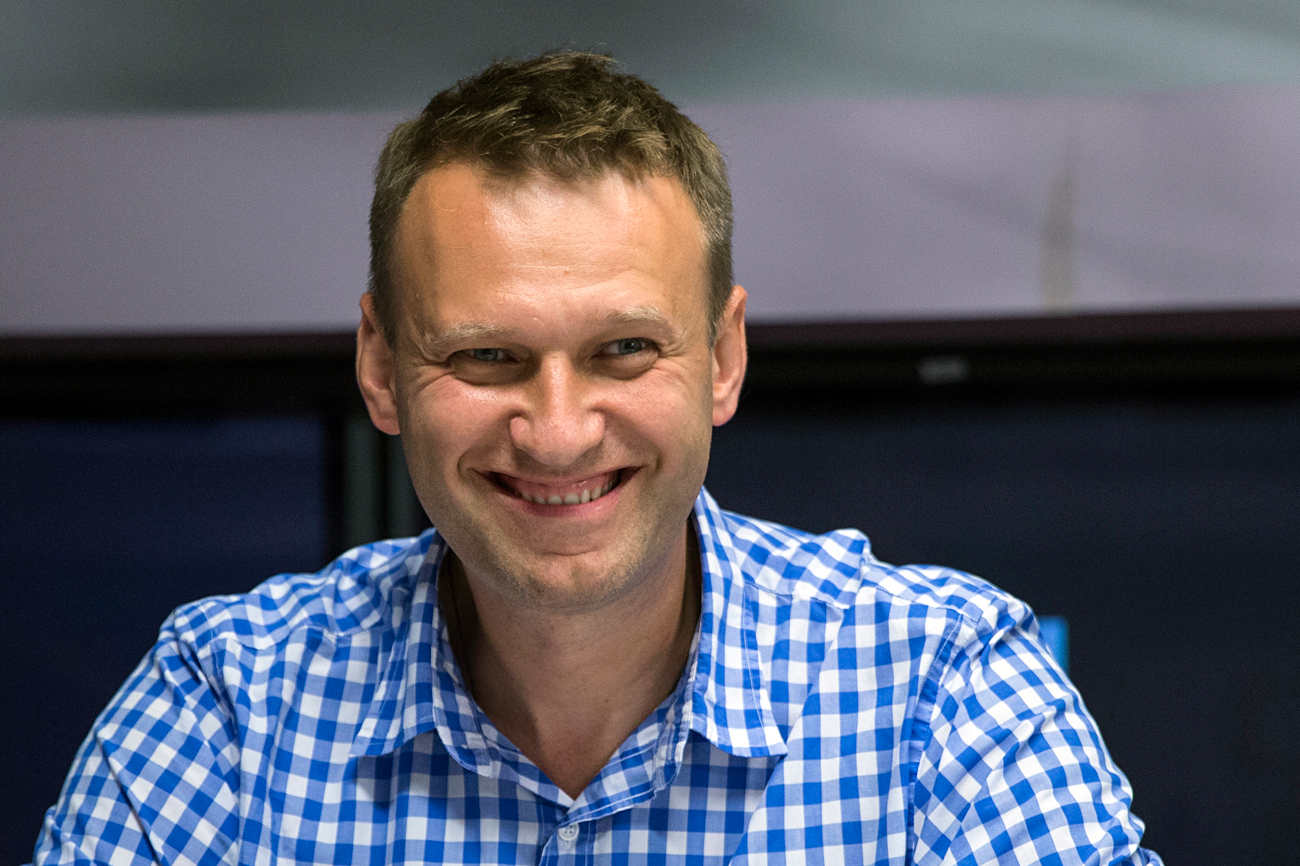
Russian opposition activist Alexei Navalny at the Ekho Moskvy radio station in Moscow.
APOpposition figurehead and anti-corruption campaigner Alexei Navalny's right to vote and run for office has been returned after the Supreme Court sent the controversial case in which he and Pyotr Ofitserov were convicted for stealing property from the Kirovles logging enterprise for another review, thus canceling the lower court's previous decision.
In July 2013 the Leninsky District Court in the city of Kirov (490 miles east of Moscow) found Navalny and Ofitserov guilty of large-scale embezzlement (16 million rubles or $510,000) in a case that was widely seen as fabricated for political reasons. They were sentenced to five and four years in jail but a day later the mandatory sentence was changed to a suspended sentence.
But in February 2016 the European Court of Human Rights (ECHR) recognized that the Russian court had violated the men's right to a fair trial and established that they had been convicted according to an arbitrary interpretation of the law. Based on this verdict, the Russian Supreme Court ordered the case to be reviewed, though it ignored the ECHR’s demand that Navalny be fully acquitted.
Member of the Chamber of Attorneys and international lawyer Valery Vanin told RBTH that until the court's new decision Navalny will be presumed innocent, which means that the suspended sentence for the theft has been annulled.
"The wording 'sent for a new review' means that there is no more verdict. Legally he is no longer convicted but only accused and this cannot prevent him from participating in electoral procedures," explained Vanin.
The Russian law does not allow individuals with outstanding charges to participate in elections and run for office in the course of 10 years (if it is a serious crime) or 15 years (if it is an exceptionally serious crime) from the day the charges are canceled.
According to Vanin, the Kirovles affair now returns to the phase when the preliminary investigation is finished and the evidence has been collected. This means that the court can begin collecting new evidence, as well as evaluating the proof already collected.
Navalny was also convicted of embezzlement in another affair, the so-called Yves Rocher case – which he also dismissed as politically motivated. However, the case is of medium seriousness and would not impede him from running for office.
Navalny himself is not particularly content about the review of the Kirovles case.
“I don’t have the smallest desire to go back and forth to Kirov. This is being done in order to impede my political activity and my investigations,” he said on Nov. 16.
“Today I was supposed to be acquitted but the Supreme Court refused to carry out the ECHR's decision. We will complain to the Council of Europe," said Navalny.
In August 2016, Navalny said that he would like to participate in the 2018 presidential elections and that it was this sentence that was preventing him from doing so.
All rights reserved by Rossiyskaya Gazeta.
Subscribe
to our newsletter!
Get the week's best stories straight to your inbox